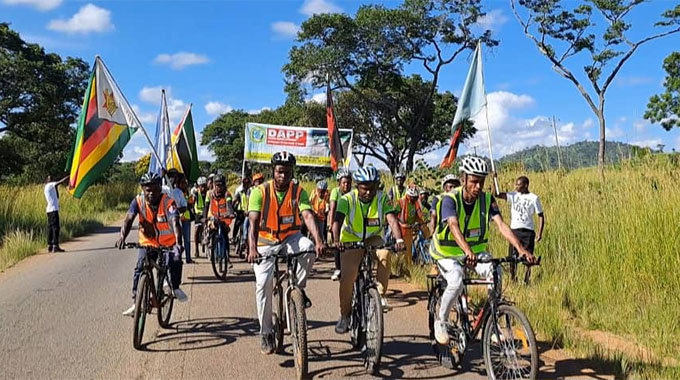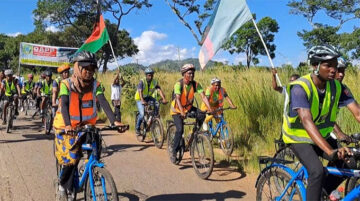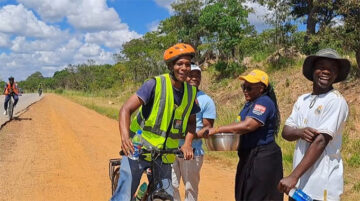Africa, China youths share ideas, strategies on climate change adaptation

Fungai Lupande Mashonaland Central Bureau
Youths from Africa and China are sharing ideas and strategies on how to mitigate and adapt to climate change as they undergo their humanitarian studies at the Frontline Institute in Shamva.
Zimbabwe’s Pfumvudza/Intwasa concept has excited Mozambican students who have joined others from different countries at Frontline Institute.
Zimbabwean youths adopted the Chinese compost, beekeeping and rabbit breeding techniques from Zambia and Malawian.

Recently, 42 students from six countries who are on their six-month advanced project management course, cycled over 70 kilometres from Mutoko Road tollgate to the school in Shamva.
This became the first group after the Covid-19 pandemic to travel to Zimbabwe to resume their studies.
Irene Domingos from Mozambique said the conservation farming method, Pfumvudza/Intwasa, being implemented in Zimbabwe conserves moisture.
“Conservation farming is another way of fighting global warming and climate change. I learned that Zimbabwe is doing potholing and I also went to Malawi and observed that they are doing ridges,” she said.
“In Mozambique, we are also doing ridges and when I go back, I want to start implementing the Pfumvudza/Intwasa concept. I like it because it conserves moisture.”
She said as she interacted with students from other countries, she realised that gender inequality affects all countries.

“It is important to meet as youths from different countries to learn because each country has its strategies and ideas. The ideas are not the same and it is important to share our experiences, go out and learn from the communities while they in turn learn from us,” she said.
Frontline Institute principal Mr Doubt Musiiwa said as youths from different countries gather at the school to share ideas and strategies, Zimbabwe has already borrowed the Chinese way of making compost.
Known as Chinese compost, it matures in 21 days and has become popular in the communities surrounding the school in Shamva.
“The idea was brought by a Chinese student and it is now widespread in the community. We also adopted the bee-keeping technique from Malawi and Zambia,” he said.

“Students from Malawi also shared their hare breeding techniques. We started with two and in three months, they multiplied to 65. The regional cultural exchange is another way of keeping peace and tranquility.
“They come in as friends who are into fighting for development. Cycling physically and mentally prepares them for any kind of community they will work in after school.”
Another student from Mozambique, Anibal Canivet said maize is also their staple food, and food security is under threat due to climate change.
“We also use bicycles in Mozambique because some areas are not reachable with cars. I have been cycling for a long time. It builds endurance and improves my health.”










Comments